The Lost Art of Paying Close Attention to Your Situation
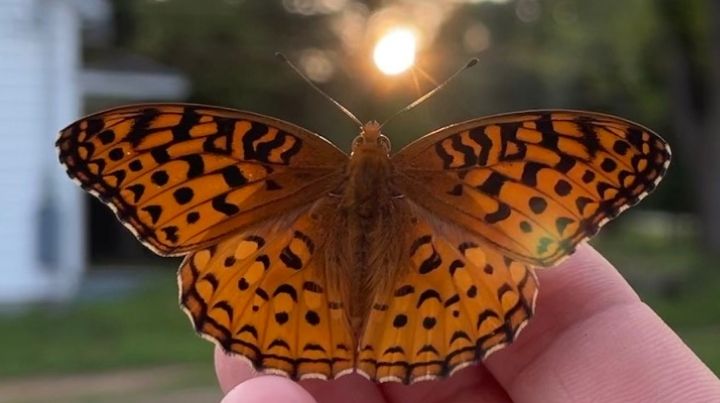
The art of paying close attention to your situation may be going extinct. That's because, in today's world, we get subjected to pressure tests of modern technology and stockpiles of skewed information. All those distractions only make it more difficult for us to make it safely through the day.
Yes, paying close attention to our situations may be an extinct art.
Why do I say “extinct art?” Because paying close attention is a learned skill, it's essential to cover the learning process.
The Learning Process
For our purposes, there are four phases of the learning process.
Phase 1 – Unconscious Incompetence
At this stage, a person has so little understanding that they don't know they are incompetent. These people genuinely have no clue that they are incompetent, incapable, etc.
Phase 2 – Conscious Incompetence
This is the person who has enough understanding to know he or she isn't competent. Moreover, while this person may not admit it, they know that they aren't as skilled as others.
Phase 3 – Conscious Competence
This is the stage where a person applies their in-depth knowledge to practical application. In other words, they take what they've learned, put it to the test, and learn better ways for them as they do.
Phase 4 – Unconscious Competence
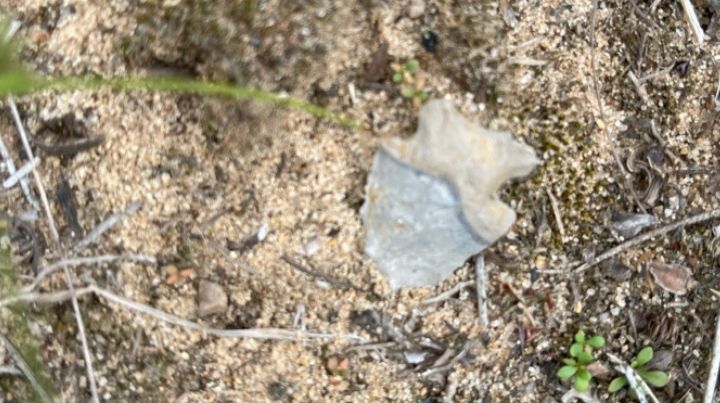
At this point, a person can perform the task or noodle out the problem without effort. This is the master tradesman, the person with years or decades of experience.
So, now that we're on the same train with regard to the learning process let's focus on what that means for our preparedness. It means that, as we all know with babies, we don't come out of our mother's wombs in anything other than unconscious incompetence. Instead, the only thing we are competent in is dirtying our diapers.
Nonetheless, we all grow in our competence as we journey through life. Some of us more than others, but the point is that we all grow. While growing, most of us become good at at least a few things.
Some of us become so good at something that we truly master whatever our “it” is. We master it to the point of being able to mindlessly succeed at whatever it is we've mastered. Some do so well that they become artists at their skill.
Paying Close Attention to Situations is Learned
So, as with any other learned competency, paying close attention is learned. Paying close attention to our situation can also be taught to oneself or others. However, to truly be able to pay attention to our environments, a person must practice. As the person pays attention better and better, the person may become a master of paying attention over time.
Eventually, a person may become an artist of paying attention. At the level of unconscious competence, a person is so in tune that Chuck Norris can't sneak up on them. They're so situationally locked on that they know what tomorrow will bring before tomorrow arrives. In other words, the artists of paying close attention to their world understand what is happening around them, like no one else.
However, all of us, regardless of competency, have a kryptonite to paying attention. Our weakness is the weakness of distraction.
Our distractions impale our awareness at the behest of our modern world. After all, it's our modern world that bombards us with a nonstop onslaught of technology and gigabytes of skewed information. It's this constant bombardment of technology and skewed information that is our kryptonite. And, it's our kryptonite that reduces our ability to pay close attention to levels that rival the unconsciously incompetent.
The Pre-Information Age
In the pre-information age, people mainly focused on the here and now. After all, it was only 55 years ago that Gene Rodenberry first conceived of the tricorder, a 1966 fantasy for Star Fleet officers to be equipped in today's reality. Today's reality is minus being a Star Fleet officer and minus the fact that Spock's tricorder didn't hammer him with CNN, Fox, or MSNBC all day. Spock never mentioned a FaceBook account, so I imagine he was free from that nonstop cannon to the consciousness.
At the end of the day, most of us simply hope to have enough attention to detail to make it through the day unscathed. Unfortunately, that hope of making it through physically unharmed is getting smashed more and more with every additional distracted driver (or insert whatever irritates you the most here) wreck. Likewise, every piece of toxic information spewed our way risks polluting our often overloaded thought processes.
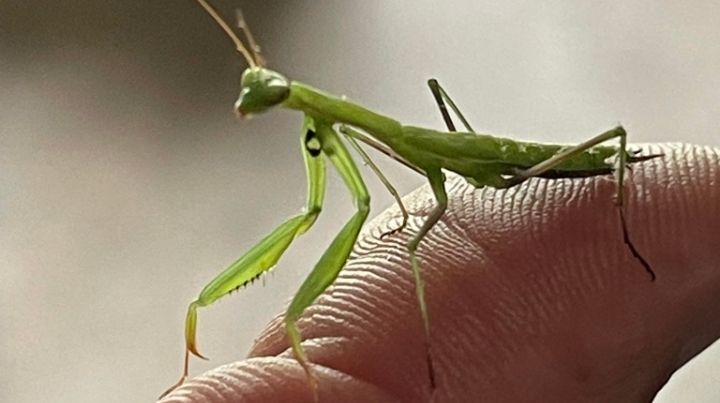
The fact is, as technology advances, our ability to pay close attention diminishes. As our ability to pay attention diminishes, so too does our chances of making it through each day unscathed. Unfortunately, for those who choose not to pay attention, not much will protect them until technology provides a more advanced safety net for the unaware. Likewise, fortunately for those who choose to be their own safety net as much as possible, there is a solution.
The Paying Attention Solution
The solution is to make the conscious decision to set the tech down as often as possible. If you do, you may find over time that your conscious decision to unburden your tech becomes an unconscious decision. With that, you will likely find that you are more in tune with your surroundings than before you took your sabbatical from tech.
Only after you're in tune with your personal environment is it okay to open your focus to include the outside world. As you do, try to keep in mind, it's an outside world that we often have no control over. So, it's an external world of information, nothing more, nothing less.
The Bottom Line of Paying Close Attention to Our Situation
Paying close attention to our environment does not mean only seeing what's heading our way that may pose a threat. It also means becoming less stressed by focusing on the here and now while avoiding a raging torrent of distractions. As we become better at focusing on the here and now, we'll become much more in tune with what is around us, which means we will find ourselves more safe, confident, and self-reliant.
Then, once we can better protect ourselves and our families, we'll find the art in paying close attention to our world, is the art that is revealed to those who pay attention.
Now, tell us about your paying attention wins and fails in the comments below. We'd love to learn from your experience!
Stay safe,

Related Articles
FREE Guide
Read the Best Seller
Join Mind4Survival
Stay informed by joining the Mind4Survival! 100% Secure! 0% Spam!
Affiliate Disclosure...
Mind4Survival is a free, reader-supported information resource. If you make a purchase through our link, we may, at no cost to you, receive an affiliate commission.
Do You Want To Be Ready No Matter What?

Download our free 39-page guide with interactive, 7-Day Emergency Kit Checklist and take the first step toward real preparedness.
- Know exactly where to start.
- Save time and money.
- How-to build a complete Basic Emergency Kit.
- Level up your safety and security.
Join Mind4Survival
Stay informed by joining the Mind4Survival! 100% Secure! 0% Spam!

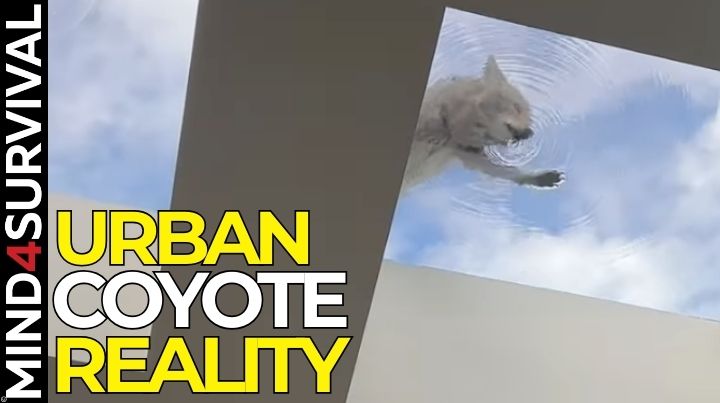
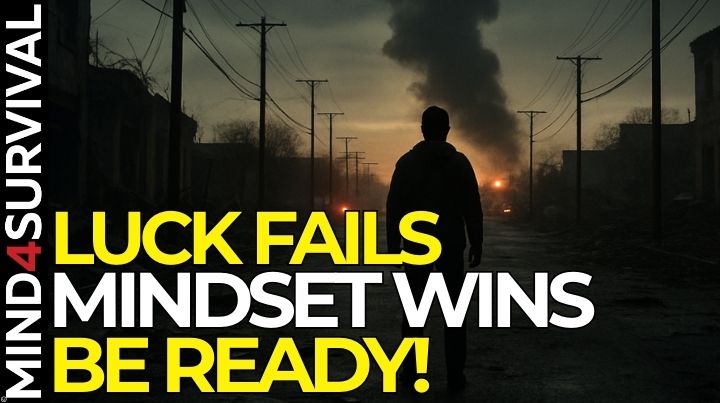



Paying attention… is truly a lost art. Brian you and I have shared many of the same professions firefighter, infantry, medic, throwing ourselves out of perfectly (they said) good planes, AEMT and presently a contractor. My sense of paying attention came from growing up in a very volatile home. I learned early to study and know body language, voice tone, posture and all the warning signs. Learning those things gave me an edge and literally kept me alive. Knowing when to run always sent me to the woods to avoid the conflict. My senses developed more there learning to listen and to watch animals and how they acted around me. The military developed my senses even more. I learned to pay attention to the hair on my neck standing up I tuned into my more primal instincts and the feeling of when we were going to get hit. Sometimes you could even smell the trouble. When all the kids in the village would disappear or not even be there when we arrived. The closeness of the air. The sour taste in your mouth (not counting the chewing tobacco lol) the disappearance of the dogs. The different color patches in the road or recently disturbed earth. The sight of a wire just peeking out of the dirt 20ft away. Being a medic I learned to watch people even closer to see if their pain was real or imagined. Where their pain was and what to do for them. As a contractor I fine tuned the quick scanning of faces in crowds that often times forecasts threats without letting people know I was studying them. One of the things I used to do often was go to a mall and just watch people and make up narratives in my head about what was going on with the person. I walked close to people to get the vibe from them then back off and watch them to see if I was right on their mood. I have several times been with friends and see a threat approaching and they’re oblivious until I move them or put myself in the threat’s path to deter them because the threat doesn’t like being noticed before they’re ready and if you intervene in their mission path you ruin their day. Learning to pay attention takes practice just like any other skill and it’s a perishable skill. I would venture to say it’s one of the most important skills a person can have and in light of things today it could literally mean life or death.
Retired street cop/multi-deployments to SWAsia… Excellent information Brian & most helpful to me.
Thanks Doug! I appreciate your feedback and service. ~Brian